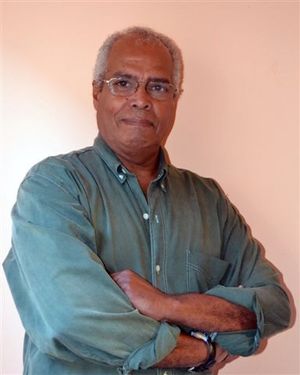Full life for the glory of God

Faustino de Jesús Zamora Vargas
SUMMARY: The author reflects on growing up in Cuba during the 60s, a time of romanticism and rebellion against religion. They describe how submitting to God was seen as humiliation and degradation, and how the concept of God was almost non-existent in their society. However, in the 90s, there was a rediscovery of faith in Cuba and the author came to understand why the gospel is madness for those who are lost and the power of God for those who seek His face. They end by giving glory to God and asking for His blessings.
I belong to a generation in Cuba that grew up between the apparent naturalness of directed humiliation and the daring of the insular troubadour song of the 60s, the 'protest song, as connoisseurs used to call it. '... I get distracted, the city collapses and I sing ...' a well-known singer of the time sang with a certain indifference , presumptuous identity of the last Cuban-style "hippies" of those years when we were camping from top to bottom, with stark faces, wearing shoes in the style of our mambises - Cuban combatants from the time when Cuba was a Spanish colony - and beatlemanic airs that sang "... all you need is love." It was the time of the 60s of the last century, of romanticism with a flavor of the forbidden, of the support for faith, of the exodus of many faithful to the then flourishing fields of materialism to begin a life without religious commitments. The imported expression "Religion is the opium of the peoples" became an almost official dogma. A time (with the phrase included) very similar to today in many parts of the world.
We tried to plunge the living God into the frenzy of the rumba and a rattle of maracas. Afro-Cuban folklore, with its pantheon of deities at its expense, dutifully assumed the benefits of being almost officially named the seal of true Cubanness. How to submit to God if no one submitted to anyone? The adage of submitting to God sounded like humiliation, degradation, and outrage. The formula of submitting to another smelled of the cracking of virtue.
The man woke up every morning with his rifle at the ready, in the jungle of a life without Christ, ready to shoot at point-blank range, without qualms or warnings, against the fate of his own brother. You had to survive. We all sang a hymn in fashion at the time that spoke of man's need to seek his own redemption (without God, of course). It was an open door to madness, to stark atheism, to the empowerment of man to cultivate his own glory. Many announced the final death of God, it was not necessary that faith of promises contained in a book (the Bible) that very few read. Churches - he meant temples and buildings - will cease to exist. But you know it as much as I do: “… God's madness is wiser than human wisdom… (1 Cor 1.25). And the time of God came. Why are we so impatient?
God existed only for those "crazy" who dared to visit the churches. The 90's arrived and the rediscovery of the faith in my beautiful country. And suddenly the crazy people began to be seen as sane and the churches were filled with sane people who very quickly went crazy (for Christ). Until today.
Then I understood why the gospel is madness for those who are lost, the power of God for those who seek his face. To Him be the glory.
God bless you!
We tried to plunge the living God into the frenzy of the rumba and a rattle of maracas. Afro-Cuban folklore, with its pantheon of deities at its expense, dutifully assumed the benefits of being almost officially named the seal of true Cubanness. How to submit to God if no one submitted to anyone? The adage of submitting to God sounded like humiliation, degradation, and outrage. The formula of submitting to another smelled of the cracking of virtue.
The man woke up every morning with his rifle at the ready, in the jungle of a life without Christ, ready to shoot at point-blank range, without qualms or warnings, against the fate of his own brother. You had to survive. We all sang a hymn in fashion at the time that spoke of man's need to seek his own redemption (without God, of course). It was an open door to madness, to stark atheism, to the empowerment of man to cultivate his own glory. Many announced the final death of God, it was not necessary that faith of promises contained in a book (the Bible) that very few read. Churches - he meant temples and buildings - will cease to exist. But you know it as much as I do: “… God's madness is wiser than human wisdom… (1 Cor 1.25). And the time of God came. Why are we so impatient?
God existed only for those "crazy" who dared to visit the churches. The 90's arrived and the rediscovery of the faith in my beautiful country. And suddenly the crazy people began to be seen as sane and the churches were filled with sane people who very quickly went crazy (for Christ). Until today.
Then I understood why the gospel is madness for those who are lost, the power of God for those who seek his face. To Him be the glory.
God bless you!
